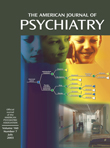Understanding Depression: What We Know and What You Can Do About It
This book’s audience is intended to be people suffering from depression or bipolar disorder and their relatives. The book is divided into four parts: Understanding Depression, Unraveling the Secrets [of depression], Destructive Effects of Mania or Depression, and Treatments of Depression. The intended audience will find this book easy to read yet comprehensive. Topics are reviewed in a scientific manner, but the language is not overly technical, and, appropriately, trade lingo is not used.
Patients and their families will find a number of sections particularly helpful. The chapters on genetics and “Who Is at Risk for Depression?” are clear and comprehensive. The section on how to manage destructive and suicidal behavior will also be highly valuable for families.
There is a comprehensive review on treatment options for depression. One chapter on alternative treatments critically reviews the available data. Another chapter addresses hospitalization, providing guidance on what to expect for both inpatient care and partial hospitalization. In general, however, the review of treatments for bipolar disorder is not as thorough.
A chapter titled “Getting Back to Normal” provides helpful advice for patients and their families, including the different stages of recovery and the risk of further recurrences. The book also includes an appendix on insurance that provides a succinct overview of the topic. The appendixes on helpful organizations and books are comprehensive and highly informative.
I very highly recommend this book. There is no doubt that the intended audience—people who suffer from depression and their families—will find it extremely helpful.



